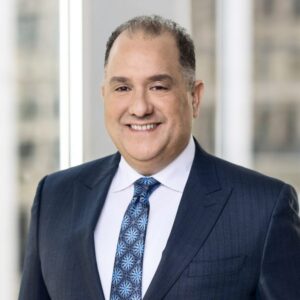Insights < BACK TO ALL INSIGHTS
Should FTC Sue Law Schools For Misrepresentation?
Should FTC Sue Law Schools For Misrepresentation?
By: Jeff Ifrah
On May 25, 2011, a class action was filed against the Thomas Jefferson School of Law (TJSL) in San Diego for intentionally misrepresenting employment data of recent alumni. The complaint states that in order to continue attracting students despite exorbitant law student debt and a depleted legal job market, TJSL has “adopted a practice of misrepresenting its post-graduation employment statistics.”
These facts aren’t unique. According to a non-profit devoted to this issue, until very recently almost all 198 American Bar Association-accredited law schools deceptively touted churning out graduates with at least a 90 percent employment rate within nine months of graduation.
The Above the Law blog very recently referred to UCLA Law’s claim that 97.9 percent of its class of 2010 was employed within nine months of graduation at a median starting salary of $145,000 as “frankly unbelievable.”
According to Paul Campos in The New Republic, only about 60 percent of law graduates nationwide obtain permanent, full-time legal employment nine months after graduation.
Some observers say the Federal Trade Commission should step in to have turned to investigate whether the law schools have engaged in false advertising. However, we doubt that this would be a good idea, for several reasons.
Is there jurisdiction? The FTC’s jurisdiction is limited to entities such as for-profit corporations and partnerships and nonprofits that provide a pecuniary benefit to members. This may not include law schools, which are nonprofit institutions of higher education that provide scholastic rather than economic benefits. For the FTC to assert jurisdiction in this instance would be tantamount to an effort to regulate the advertising and marketing of all institutions of higher education, which would be far from the original purpose of the FTC to regulate the trade practices of businesses.
Are law schools completely at fault? Employment statistics are gathered according to the industry standard — a compilation of voluntary student responses to questionnaires provided by the ABA. However, many schools are not receiving anything near full participation from their students, resulting in skewed statistics. Schools tend to indicate this by inserting a disclaimer of the true percentage of student participation, making it clear that the statistic is not fully reliable. However, U.S. News & World Report publishes these statistics without the disclaimer. USNWR remains the most popular resource for potential law students in researching which law schools to attend, and its readers will find no disclaimer.
Is there a violation? Even if the FTC could regulate law schools, in order for there to be a false advertising violation, the misrepresentation must be material. There are numerous factors that go into a perspective student’s decision: location, student body, student/faculty ratio, tuition, and the average GPA/LSAT scores of admitted students. Further, the misrepresentation must also have been reasonably relied upon. Nearly all perspective students who view these statistics already have or nearly have obtained an undergraduate degree. It may not be reasonable to assume that these highly educated consumers have actually relied on claims of a 90 percent-plus employment rate in today’s economy, where unemployment is known to be historically high. The FTC normally protects the most vulnerable consumers against marketing practices that target the gullible, the poor, and the less educated. A lawsuit on behalf of law school applicants hardly seems consistent with the agency’s priorities.





